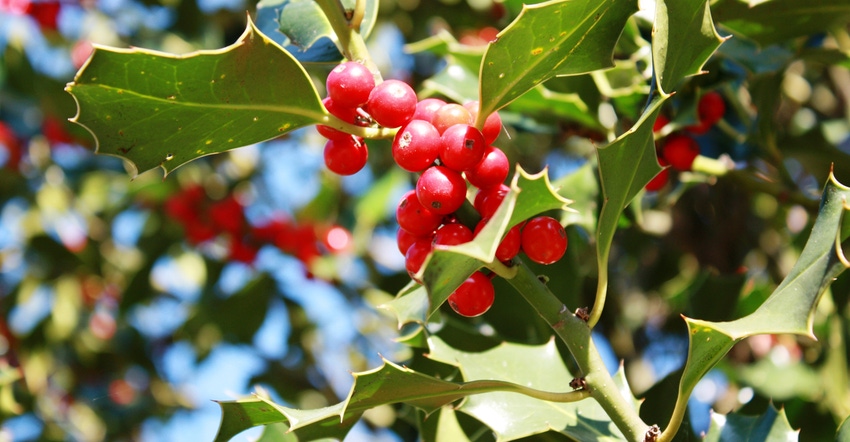December 23, 2016

I recently ran across a news release from the University of Missouri Extension regarding safety during the holiday season. And while I get the ideas of "Don't let your tree dry out for fear of fire" and "Don't leave lit candles by window curtains," it was the concern over toxic plants and children that caught my attention.
With young children around my home this year eager to touch all of the holiday decorations, I guess I never thought that some of my decorations could bring harm to my littlest guests.
According to MU Extension horticulturist David Trinklein, evergreens, holly, mistletoe and other traditional plants adorning homes at this festive time of the year can pose risks. "Some traditional plants contain toxic compounds that might present a health risk," he says, "especially to children." Here are a few he thought homeowners and Christmas decorating divas should know about:
Holly berries. The red berries of holly are considered mildly poisonous and can cause nausea, vomiting and diarrhea if ingested. These bright berries are quite appealing to young children. Keep holly well out of the reach of youngsters, and make sure that any berries that might accidentally drop from the decoration cannot fall to the floor and be retrieved by a curious child, says Trinklein.
Yew shrub. The leaves, bark and seeds of the common evergreen yew shrub are considered toxic. Yew produces a small red fruit that might be attractive to children. While the pulp of the fruit is harmless, the seeds, if chewed, can be quite toxic.
Mistletoe. Mistletoe is a holiday plant steeped with folklore and tradition. However, use mistletoe with extreme care, Trinklein says. Both the American and European types are highly toxic. Keep both kinds well out of the reach of children. If using fresh mistletoe, keep it wrapped with plastic so its leaves and berries can't fall to the floor.
Keep your children safe this Christmas season and put decorations up high, where little fingers cannot reach. It is important to keep the holidays safe for even the youngest — and often the most inquisitive — of guests.
You May Also Like




